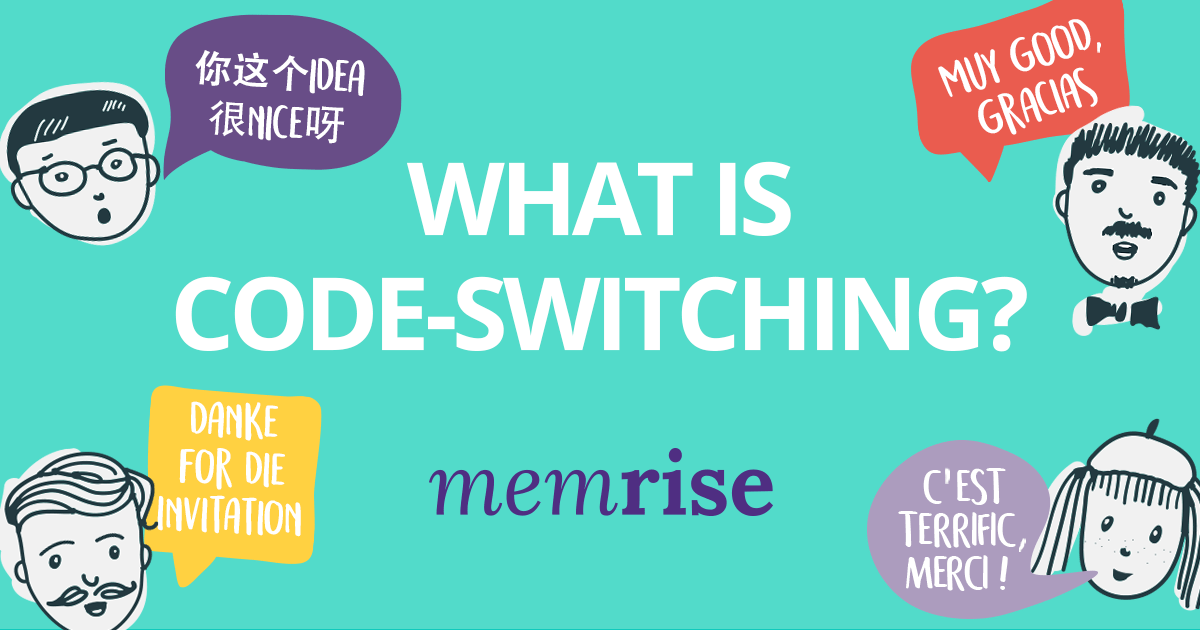Ce moment when you start penser en deux langues at the same temps… ever had it?
When people start switching words from different languages into and out of their sentences, it turns out they’re not just been pretentious. Well at least, not all the time.
You might, in fact, be “code-switching”. Code-switching is a totally natural phenomenon that occurs in bilingual and multilingual people, especially when they speak to people who speak the same languages as them. And here are some reasons why people might do it:
The Topic
People who speak different languages sometimes feel more comfortable speaking about specific topics in specific languages. That might be because that topic requires specific vocabulary that they don’t have in the other language, or because they’ve never spoken about the topic in that language.
One classic example is people who move to the UK or US after completing their studies to work. They may never have experienced working life in their native language, so it’s easier for them to talk about meetings, leave requests, and other work jargon in English – even if they’re talking about their work in their native language!
Quoting someone
For a multilingual person, it’s much more natural to repeat exactly what you heard someone say rather than have to think about how to translate it first. People who speak multiple languages are hyper-aware of how much can be lost in translation. If they’re telling an anecdote, it’s easier for them to quote someone in the language they used.
Emotions
We all develop different levels of emotional attachment to different languages. We can also be more or less sensitive to the things that we are saying, depending on how strongly we feel about a certain language, which is one reason why people might tend to swear more in languages they do not speak natively.
When expressing gratitude, sorrow, or other strong feelings, people might subconsciously switch into other languages in which they feel that they can express themselves better.
Clarifications
Sometimes if people code-switch, it’s to make themselves better understood. Maybe the person they’re speaking to doesn’t have such a wide vocabulary, and so they need to use a word from their stronger language to communicate what they’re trying to say better.
Identity
The language we speak is inseparable from our identity. Sometimes code-switchers will start using another language to gain more or less social status, or make a different impression. Other times, they might switch to a different language to introduce someone to a group when that person doesn’t share the same language as them.
Commands and Requests
Some people code-switch into a different language either to sound more authoritative or more approachable. This is particularly common for parents bringing up children multilingually, who might end up using specific languages for different interactions.
Nuance
Sometimes speakers are worried that if they translate a word, saying or expression, that it will become distorted. For some people, words in different languages have totally separate and different connotations, depending on where they end up using them.
For example, a Spanish ‘cervecería’ is quite different to a British ‘pub’, even though you’d be tempted to translate them like that. A cervecería doesn’t have the swirly beer-stained carpets of your British pub, while in a pub you wouldn’t expect to sit at the bar and eat plates of potato omelette or get a full three-course meal for €8…
Is it good or bad?
Code-switching is a totally natural phenomenon. So is feeling more proficient on certain topics in one language or another. So there’s nothing innately bad about doing it.
As a result, though, there can be some negative side effects. If you find yourself losing your ability in your native language, because you’ve become so unaccustomed to talking about certain things in it, that might be something you want to address. Try to find out what words you’re missing, and get in the habit of talking to other people who share your native language.
Also, remember that for some people code-switching isn’t just a fun side-effect of being multilingual. People might deliberately do it to try and hide their social identity, religion, class or assimilate into different groups. Whether that’s good or bad in itself is a grey area and very dependent on the circumstances.
So people code-switch for a variety of reasons and motivations. But mainly they do it because whatever the reason, it feels right at the time!








